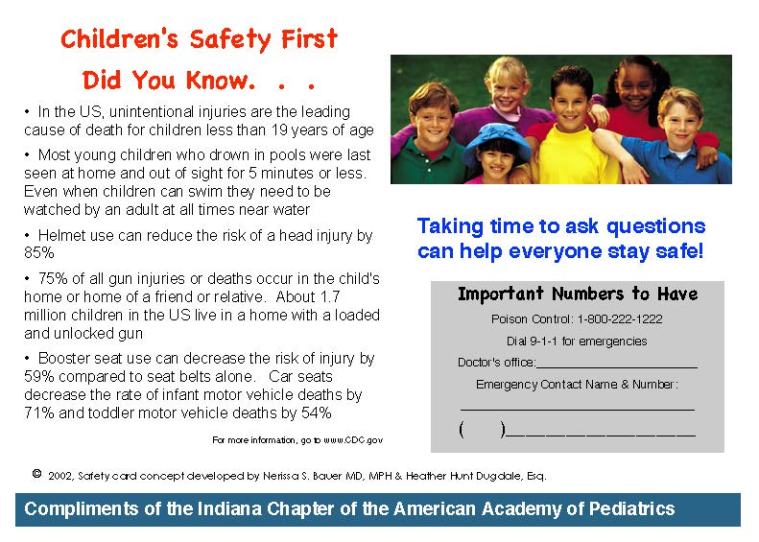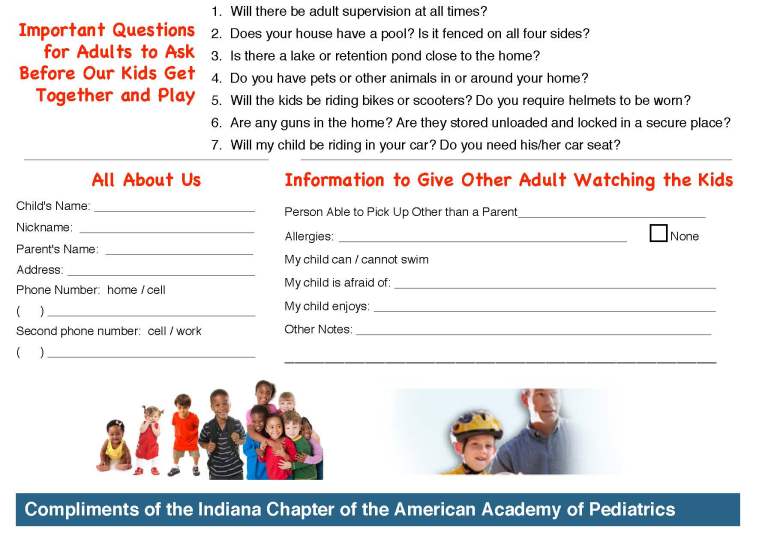By Dr. Nerissa S. Bauer
One of the first issues I became passionate about was keeping kids safe from guns. Why? While I was a pediatric resident in San Diego, the school shootings at Santee, California occurred. This was just two years after the horrific events at Columbine. I saw kids coming to clinic, with non-specific complaints and in the end, not wanting to go to school. Parents had questions about how to best handle their kids’ (and their own) fears.
Why did this happen? How could it happen here? Should kids be allowed to stay home from school? What can we do from preventing this horrible thing from happening again?
This experience set me on the path towards advocating for children’s health within the context of public health. I saw just how this type of violence affects individual families but also its effects on the larger community. I started a project to simplify the screening for the presence of guns and other risks for childhood injury during clinic visits; passed out free gun locks to families who told me there were guns in the home; and distributed play date safety cards to families.
Over 75% of gun injuries and death are the result of children with easy access to guns that are improperly stored. When these types of events happen, it is usually at a friend’s house or their own. Now we see these headlines daily: a toddler who finds his mother’s handgun in her purse and accidentally shoots himself; school aged boys who come across a loaded gun during play and it accidentally discharges; a teenager with depression or is bullied who has easy access to a gun and commits suicide or decides to bring it to school as an act of revenge for perceived wrongdoings. The one thing that comes out of these events is that they are brought to our attention. The endless stories can cast no doubt that guns and kids are a public health epidemic. On the other hand, hearing these headlines daily can leave us feeling no longer shocked that these events happen. That somehow it is part of our daily fabric living in this country. Too many children’s lives lost, too many senseless events that could have been prevented. Too many families torn apart and affected by guns.
BUT DO NOT GET NUMB. Sometimes it can feel like there is nothing we can do as a society to change things because too many of these events happen EVERY DAY. However, we have a responsibility to do what we can for our own children, for those in our care, for those in our global community. No one is immune to these events.
We must remain vigilant and continue to do what we can as responsible adults, providers, parents, and community members. We can join organized groups that advocate for action at the federal level to pass sensible gun safety laws and ensuring access to comprehensive mental health services. There are things we can do each day by knowing what safety risks might be present in the places our children are allowed to play. We cannot assume that children will know the right thing to do when they stumble upon a gun.
Playdate safety cards are meant to help parents ask each other about potential safety hazards in the environment in which children play. It is hard to ask someone if they have guns in the home, and even more so of friends or acquaintances you have known for a while but may have never thought to ask. These playdates cards can help start the conversation.
While this is a small measure and will not “cure” this epidemic, it can be a step towards prevention of another event.
When parents arrange a playdate for their children, they usually share information about their children including any food allergies and any fears of pets. Parents exchange phone numbers or emails in the process. This is the ideal time to ask whether there are guns in the home. It is up to the individual parent what to do with that information if the answer is yes. However, if you don’t ask, you won’t know–and I would argue it is always better to know.
The cards can be printed on cardstock. You can stick it on the refrigerator with a magnet or in an address book once completed. You can trade them when you meet another parent. The crucial part is that it has statistics and a section with questions to ask the other parent. If you cannot bring yourself to ask spontaneously, having these cards can give you ideas for how to start the conversation. The first few times may feel awkward, but after that it becomes easier.


*A special thanks to Heather Hunt Dugdale, Esq. for working with me in those early days in San Diego on this tool. Another heartfelt thanks to one of my first mentors, Dr. Bronwen Anders, whose clinic I worked at during residency, who supported and helped me gain the confidence to move this cause forward.
Educate yourself about this issue & what you can do to help this cause.
More information:
- American Academy of Pediatrics, HealthyChildren.org website has great parent friendly resources including: Gun Safety: Keeping Children Safe
- http://momsdemandaction.org
- http://everytown.org
:::
Nerissa S. Bauer, MD, MPH is a behavioral pediatrician, blogger, tweetiatrician, behavioral health care consultant and health services researcher. She most recently was an Associate Professor of Pediatrics at Indiana University School of Medicine until December 2018 when she decided to leave academia. She is now planning to spend time with her family, blogging, continuing with her tap class and launching a consulting business, NSB Consulting, LLC, which specializing in training, facilitation and implementation of best practices in behavioral healthcare in primary care settings. She is a media spokesperson for the American Academy of Pediatrics (AAP) on developmental-behavioral topics and an Executive Committee member of the AAP Council of Early Childhood. She resides with her family in Carmel, Indiana. Her blog is http://www.letstalkkidshealth.org.
